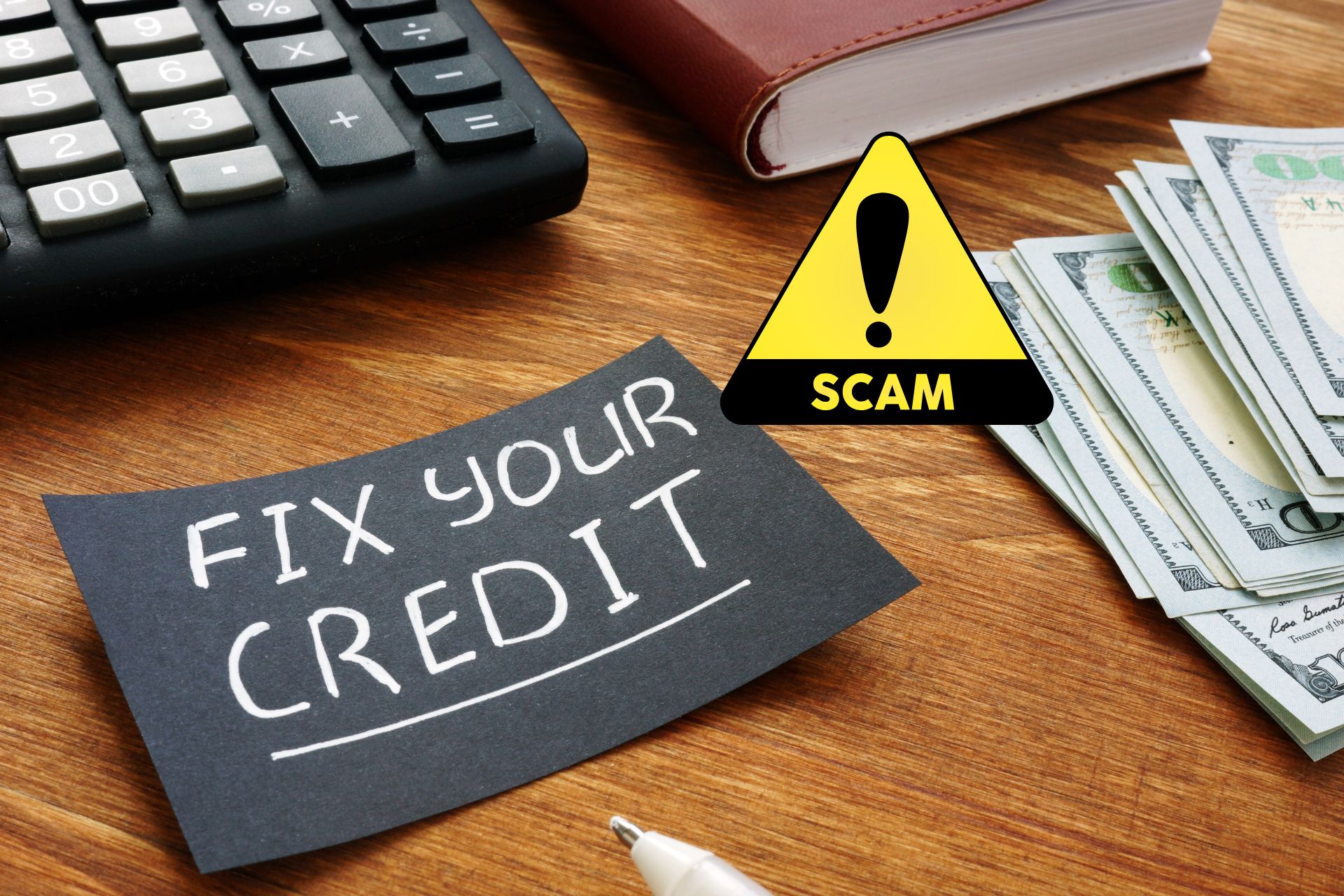Have you ever handed your financial hopes to a company that promised miracles, only to be let down? If you’ve been approached by offers claiming they can “repair your credit instantly” or “erase bad history overnight,” you’re not alone. With your credit score impacting everything from loan approvals to job prospects, it’s easy to fall for offers that sound like quick solutions.
However, these appealing promises are often scams, designed to take advantage of your trust and make your situation worse. The good news? You can avoid these traps. This guide will help you recognize credit repair scams in 2025, choose reliable services, and take real steps to improve your credit responsibly.
Understanding Credit Repair Scams: How They Operate in 2025
Although credit repair scams may appear more professional today, they often rely on the same deceptive techniques. Here’s what to watch for:
1. Requests for Upfront Payments
Reputable credit repair businesses won’t ask for money up front before doing their work. Asking for money up front is a serious warning sign.
2. Unrealistic Promises
No legitimate service can legally erase accurate negative items from your credit history. Be wary of any company that guarantees a perfect credit score or complete cleanup of your record.
3. Advice That Encourages Fraud
Some shady operations may suggest using false identities or Social Security numbers, or disputing accurate records. These practices are not only unethical—they’re illegal.
4. Lack of Clarity
If a company avoids giving written contracts, won’t answer questions clearly, or hides its contact information, steer clear.
5. Telling You to Avoid Credit Bureaus
If you’re advised not to communicate directly with credit reporting agencies, that’s a serious warning sign. Transparent companies will encourage you to stay informed and involved.
Many scammers create polished websites, use fake reviews, or pose as government agencies to appear trustworthy. While some have been shut down by authorities, new ones continue to emerge. Staying informed is your best defense.

Choosing Legitimate Credit Repair Services in 2025
While not every credit repair company is fraudulent, it’s important to know how to identify trustworthy ones. Here are some guidelines:
No Fees Until Work Is Completed
Under federal law, companies must provide results before charging you.
Clear and Detailed Agreements
Legitimate services will give you a written contract outlining their process, pricing, and your rights—including the right to cancel within three days.
Transparent and Honest Communication
Reliable companies set realistic expectations and don’t guarantee outcomes they can’t control.
Strong Track Record
Look for agencies with solid reviews, professional credentials, and a positive history. Verify their legitimacy through trusted third-party platforms.
Focus on Long-Term Credit Health
Genuine services prioritize helping you understand credit management—not just offering temporary fixes.
No Shortcuts or Illegal Actions
You should leave if you are being urged to violate the law.
Tip: Many credit issues can be fixed independently. By addressing errors, staying current on payments, and reducing debt, you can rebuild your credit over time without paying large fees.
How to Protect Your Credit in 2025: Practical Tips
While scam tactics continue to evolve, here’s how you can stay protected and proactive:
Monitor Your Credit Regularly
To examine your credit reports from all three bureaus, use reliable websites such as AnnualCreditReport.com. Report and correct any mistakes you find.
Stay Educated
Keep up with updates from the Federal Trade Commission (FTC) and the Consumer Financial Protection Bureau (CFPB) about new scams and credit repair regulations.
Use Reliable Credit Monitoring
Credit monitoring services can notify you of any suspicious activity or unauthorized use of your identity.
Report Any Fraud
If you encounter a scam or fall victim to one, report it to the FTC, CFPB, or your state attorney general. By reporting, others can avoid being singled out.
Seek Help from Nonprofit Credit Counselors
Certified nonprofit credit counseling organizations provide reliable, reasonably priced help without using pushy sales techniques.
Stay Updated on Credit Laws
Legislation continues to evolve, aiming to increase consumer protections and reduce fraudulent activities in the credit repair space.
FAQs
Look for upfront charges, guarantees that sound too good to be true, vague answers, missing documentation, or advice to avoid credit bureaus.
No. Only incorrect, outdated, or unverifiable items can be legally removed from your credit report.
Start by fixing report errors, paying all bills on time, maintaining low credit balances, and consulting nonprofit credit counseling agencies if needed.
Report the incident to the FTC, CFPB, and your state’s attorney general. Monitor your credit closely and consider using a fraud alert or credit freeze for extra security.
Conclusion
Your credit score influences major life opportunities, from homeownership to employment. Don’t let deceptive companies exploit your financial goals. By recognizing the signs of a scam, choosing safe and effective credit repair help, and taking consistent action, you can protect your credit and secure your financial future.
If you’re ever uncertain, rely on verified sources, ask the right questions, and know this: you’re in control. Every informed choice you make moves you closer to a stronger financial foundation.
Content Source
Money, LendingTree, Consumer Advice (FTC), CDIA, Bankrate, Investopedia, Federal Trade Commission, Arkansas Attorney General










